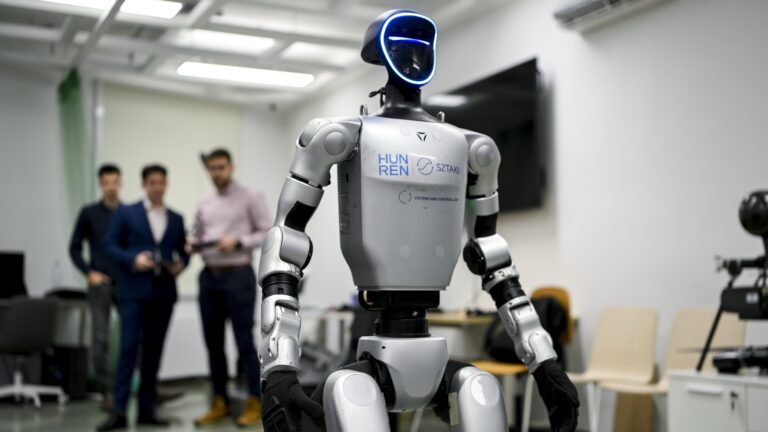Artificial intelligence is unlikely to gain consciousness in its current structure, Hungary’s government commissioner for AI László Palkovics said during a podcast episode of The Bold Truth about Hungary, hosted by State Secretary for International Communication and Relations Zoltán Kovács.
Palkovics argued that self-aware AI cannot emerge by accident but would have to be created intentionally. He questioned the logic behind such a pursuit, asking why humanity would willingly design an adversary when it already faces enough challenges. According to him, the goal is not to create entities with consciousness but rather helpful tools and systems that assist human needs and are incapable of turning into threats. While acknowledging that debates on AI consciousness can be intellectually stimulating, he suggested such discussions are best suited for philosophers and theologians rather than engineers or mathematicians.
On the practical side of AI development, Palkovics outlined the four essential components needed: data, computing power, a supportive legal and financial framework, and the intent and talent to innovate. He noted that Hungary is well-positioned in all four areas. The country has access to large volumes of structured data, especially in fields like agriculture, forestry, game management, and healthcare, as well as from institutions like the Central Statistical Office. This data can be cleaned and used to train AI models that are competitive in specialized domains, even if they may not rival global models in general language capabilities.
Palkovics László: Az AI hatalmas lehetőség Magyarország számára
Ebben az epizódban Palkovics László volt miniszter, jelenlegi kormánybiztos osztja meg gondolatait a mesterséges intelligencia hazai fejlesztéséről és alkalmazásáról.
Hungary currently operates several smaller-scale supercomputers, including the Komondor in Debrecen, which runs at five petaflops. A procurement process is also being launched for a new, more powerful machine named Levente, designed to reach 20 petaflops. According to Palkovics, Hungary’s energy mix is well-suited to support such infrastructure, and sustainability considerations like carbon neutrality and storage capacity are being taken into account. He emphasized that the value of these supercomputers lies in their constant use, which requires around-the-clock power. Therefore, the source and cost of energy become critical factors in the long-term viability of such systems.
Responding to a question about developing a Hungarian-made language model, Palkovics said that while a domestic model may not be able to compete internationally at the linguistic level, it could perform strongly in several sector-specific applications. He reiterated that the key lies in the quality and structure of the training data, where Hungary has an advantage. He also mentioned the need to digitize Hungary’s vast paper archives, including some 300 kilometres of documents held by the National Archives, to fully tap into their AI training potential.
Palkovics dismissed concerns about surveillance in connection with Hungary’s Digital Citizenship Programme, calling it a beneficial service that improves government efficiency and simplifies citizens’ interactions with the state. Drawing on his own experience in government, he highlighted the growing understanding that well-applied data can significantly enhance policymaking when combined with effective digital tools.
Related articles:







